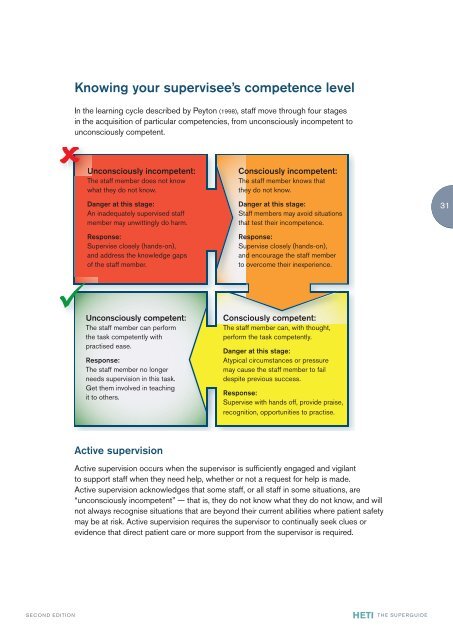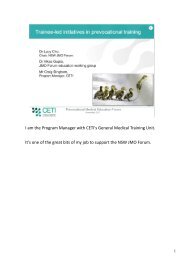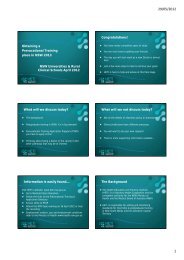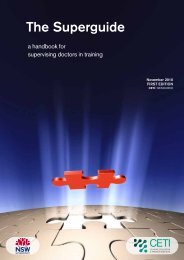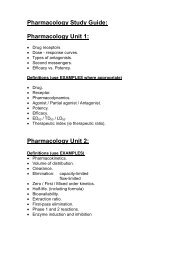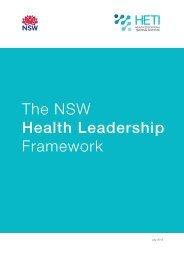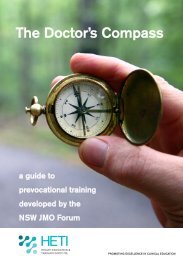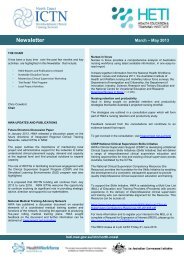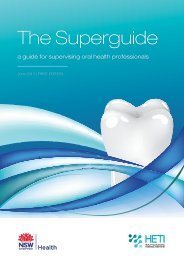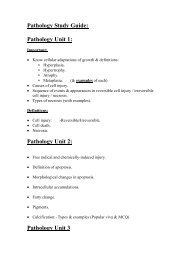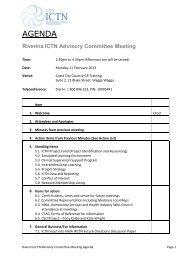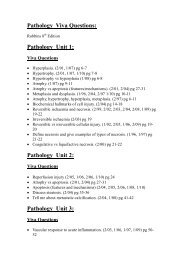a handbook for supervising allied health professionals - HETI - NSW ...
a handbook for supervising allied health professionals - HETI - NSW ...
a handbook for supervising allied health professionals - HETI - NSW ...
Create successful ePaper yourself
Turn your PDF publications into a flip-book with our unique Google optimized e-Paper software.
Knowing your supervisee’s competence level<br />
In the learning cycle described by Peyton (1998), staff move through four stages<br />
in the acquisition of particular competencies, from unconsciously incompetent to<br />
unconsciously competent.<br />
Unconsciously incompetent:<br />
Consciously incompetent:<br />
The staff member does not know<br />
The staff member knows that<br />
what they do not know.<br />
they do not know.<br />
Danger at this stage:<br />
Danger at this stage:<br />
An inadequately supervised staff<br />
Staff members may avoid situations<br />
member may unwittingly do harm.<br />
that test their incompetence.<br />
Response:<br />
Response:<br />
Supervise closely (hands-on),<br />
Supervise closely (hands-on),<br />
and address the knowledge gaps<br />
and encourage the staff member<br />
of the staff member.<br />
to overcome their inexperience.<br />
Unconsciously competent: Consciously competent:<br />
The staff member can per<strong>for</strong>m<br />
The staff member can, with thought,<br />
the task competently with<br />
per<strong>for</strong>m the task competently.<br />
practised ease.<br />
Danger at this stage:<br />
Response:<br />
Atypical circumstances or pressure<br />
The staff member no longer<br />
may cause the staff member to fail<br />
needs supervision in this task.<br />
despite previous success.<br />
Get them involved in teaching<br />
Response:<br />
it to others.<br />
Supervise with hands off, provide praise,<br />
recognition, opportunities to practise.<br />
Active supervision<br />
SECOND EDITION<br />
Active supervision occurs when the supervisor is sufficiently engaged and vigilant<br />
to support staff when they need help, whether or not a request <strong>for</strong> help is made.<br />
Active supervision acknowledges that some staff, or all staff in some situations, are<br />
“unconsciously incompetent” — that is, they do not know what they do not know, and will<br />
not always recognise situations that are beyond their current abilities where patient safety<br />
may be at risk. Active supervision requires the supervisor to continually seek clues or<br />
evidence that direct patient care or more support from the supervisor is required.<br />
<strong>HETI</strong><br />
THE SUPERGUIDE<br />
31


